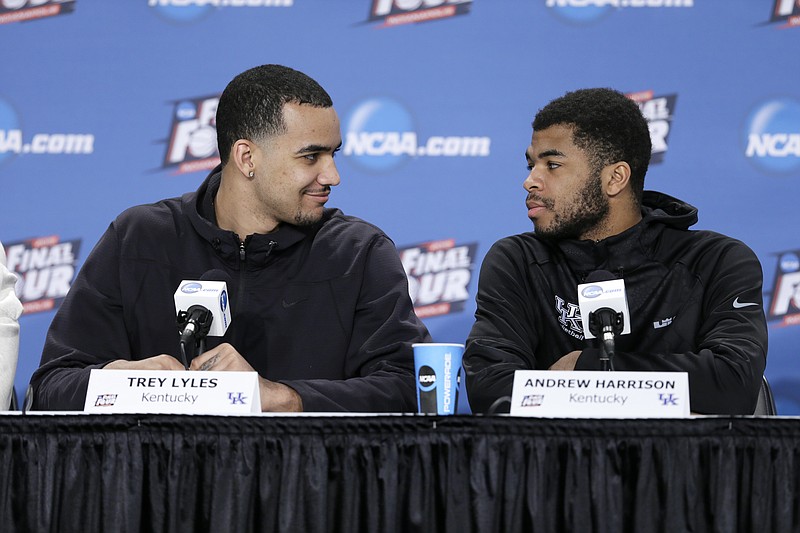Double standards.
The ugly two-word exclamation uttered when the results of a sequence of events differ between two entities -- be it race, gender or the like. Usually one faction feels slighted against another due to any sort of circumstances.
We all know they exist. Maybe in your workplace. Possibly in your home. We also know there definitely will be armies of defenders and crucifiers in the world of social media should that event take place in front of our eyes.
In some aspects of life, we should all hope for equality. And in most walks of life, that is the case. But the harsh reality is that no matter how much we want them to be, they won't ever be. We were born into this world with different skill levels. Different skin colors. Different heights. If the Lord had wanted congruity, we'd all be 5-foot-9 and look alike.
But we were born with different emotions and different thought patterns, which is what makes us all unique in a sense.
Saturday night, after his team had seen its potential perfect season -- the first in 39 years -- end in the Final Four at the hands of Wisconsin, Kentucky guard Andrew Harrison uttered a three-word phrase about Wisconsin star Frank Kaminsky that set the Internet afire.
"F--- that N---."
You can feel in the blanks. You've probably already heard exactly what Harrison said. It should be noted that Harrison is black while Kaminsky is white, for context.
For more context, it should be noted that I am black as well. I don't like the word, and don't use it. Haven't in years, because I don't want those I surround myself with in my personal life feeling comfortable using that word around me. And for those of us over the age of 25, we understand the history and the ramifications of using that word. But the reality is that we're in a different time, and the word is used far more frequently and liberally by those in younger generations.
Personally, I had more of an issue with the cuss word Harrison uttered toward Kaminsky than the slur. I get the emotion of that moment, but he came across with an extreme level of saltiness. Losing is rough, but you have to be better than that because the whole world is waiting to see you in your lowest moment, and not only did he crack, he shattered.
What Harrison said wasn't racial. The word is bad, but the truth is that it has different meanings for different races -- whether you and I like it or not. And the fact is that, in this day and age, in this social climate, he probably needs to be expelled from the University of Kentucky for what he said. Regardless of how I feel about what he said, the Lexington school doesn't need to deal with the potential backlash from possible protestors upset about the potential "double standards," considering what happened at the University of Oklahoma.
But oh, yes, that dreaded double standard.
Consider this. Say you have a mother, sister or daughter, and they were to attack a man. Perhaps the woman swings first. That man retaliate and severely injures that woman. Somebody you care about. Are you going to play the double standard card because she attacked first?
I didn't think so.
Double standards exist. And as much as we try to act as though they don't, they do.
But there is this. It's 2015, and we're arguing because a black person used a racial slur historically used for black people toward a white person.
Progress? Who knows.
Contact Gene Henley at ghenley@timesfreepress.com. Follow him at twitter.com/genehenleytfp.
